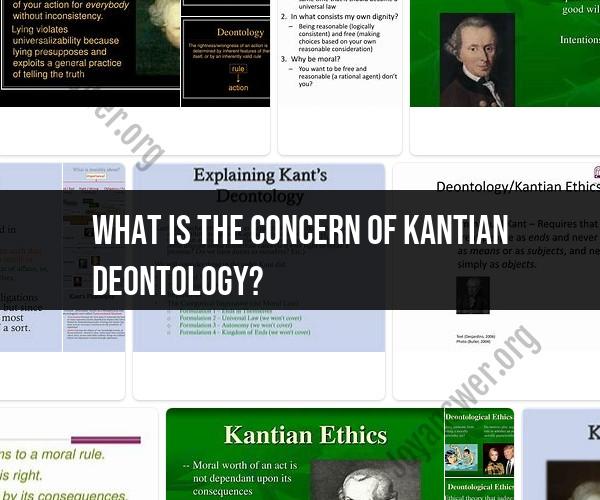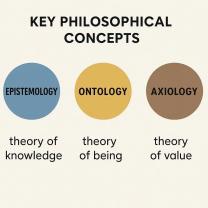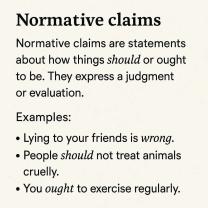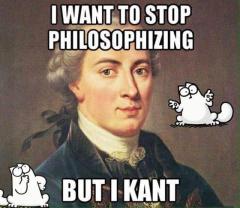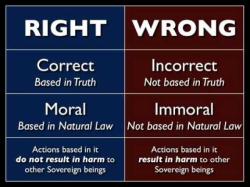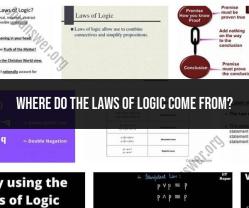What is the concern of Kantian deontology?
Kantian deontology, a moral theory developed by the philosopher Immanuel Kant, is based on the idea that there are certain ethical principles that are universally binding and should guide our actions. While Kantian deontology has its strengths, it also raises several concerns and criticisms:
Rigidity: Kant's moral theory is known for its rigidity and the absolute nature of its principles. According to Kant, certain moral principles, such as the categorical imperative, must be followed without exception. Critics argue that this inflexibility may lead to morally questionable outcomes in some situations where a more flexible approach might be ethically justified.
Conflicting Duties: In some cases, Kantian duties may conflict, leaving individuals uncertain about which duty to prioritize. For example, if the duty not to lie conflicts with the duty to protect someone from harm, it can be challenging to determine the correct course of action.
Moral Absolutism: Kantian deontology is often criticized for its moral absolutism. Critics argue that it fails to account for the complexity and nuances of real-life ethical dilemmas. Some argue that there are situations where it may be morally permissible to break a rule to achieve a greater moral good.
Lack of Guidance in Resolving Conflicts: Kantian deontology provides little guidance on how to resolve conflicts when duties clash. It does not offer a clear hierarchy of duties or a method for determining which duty should take precedence in complex situations.
Overemphasis on Intent: Kant places a significant emphasis on the intent behind an action as the primary determinant of its morality. Critics argue that this can lead to a focus on intentions at the expense of the actual consequences of an action, which may not always align with our moral intuitions.
Difficulty in Applying the Categorical Imperative: Kant's formulation of the categorical imperative, which is central to his deontological ethics, can be challenging to apply in practice. Different interpretations of the imperative can lead to different moral judgments in specific cases.
Incompatibility with Consequentialism: Kantian deontology is often seen as incompatible with consequentialist ethical theories, such as utilitarianism. Critics argue that reconciling these two approaches can be difficult when faced with moral dilemmas.
It's important to note that while Kantian deontology has its concerns and criticisms, it has also been influential in shaping modern ethical thought and continues to be a significant framework for moral reasoning. Many philosophers have worked to address these concerns and refine Kant's ideas to make them more applicable to real-world ethical dilemmas. Additionally, some ethical theories incorporate elements of both deontology and consequentialism to create a more balanced approach to moral decision-making.
